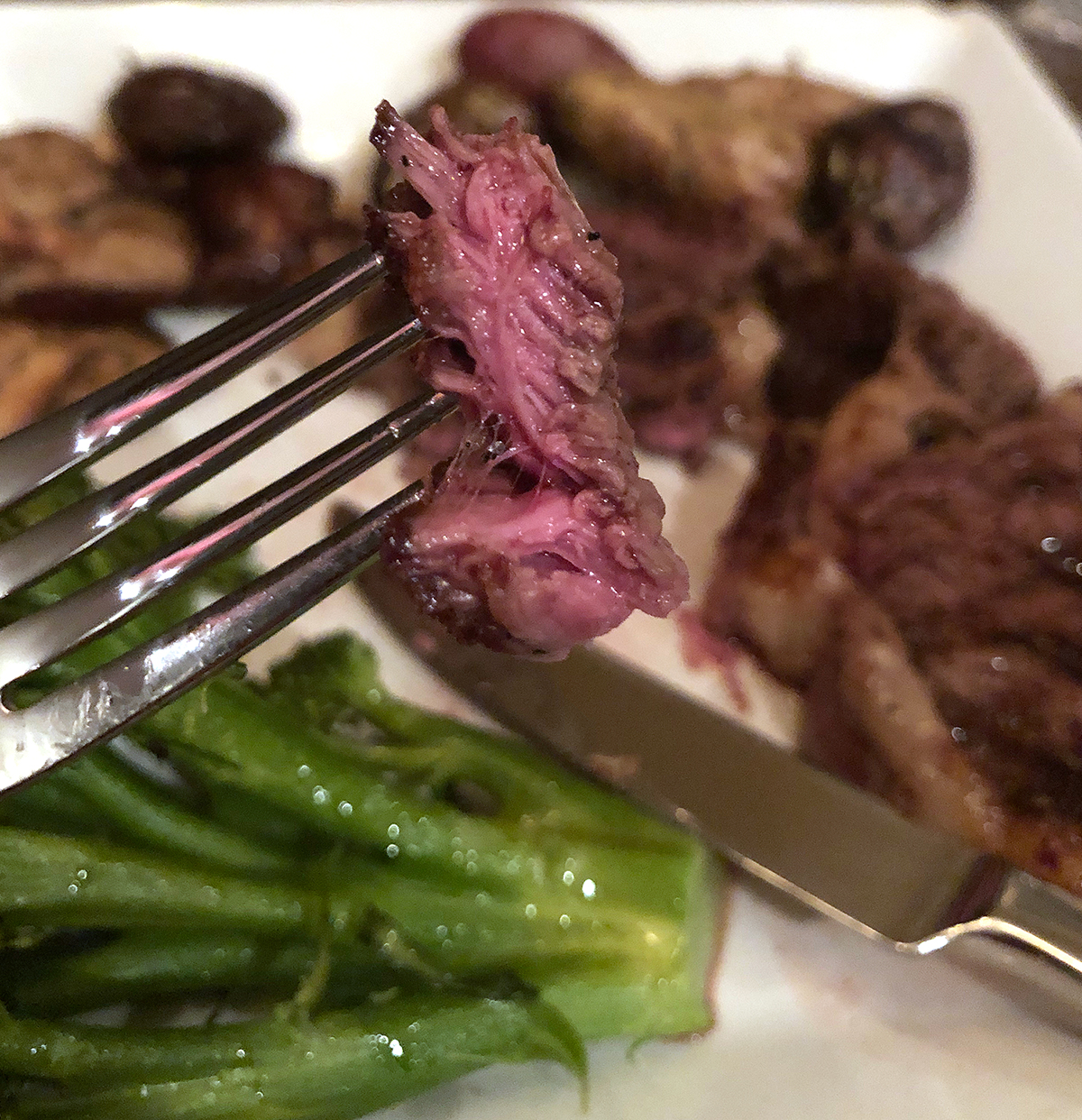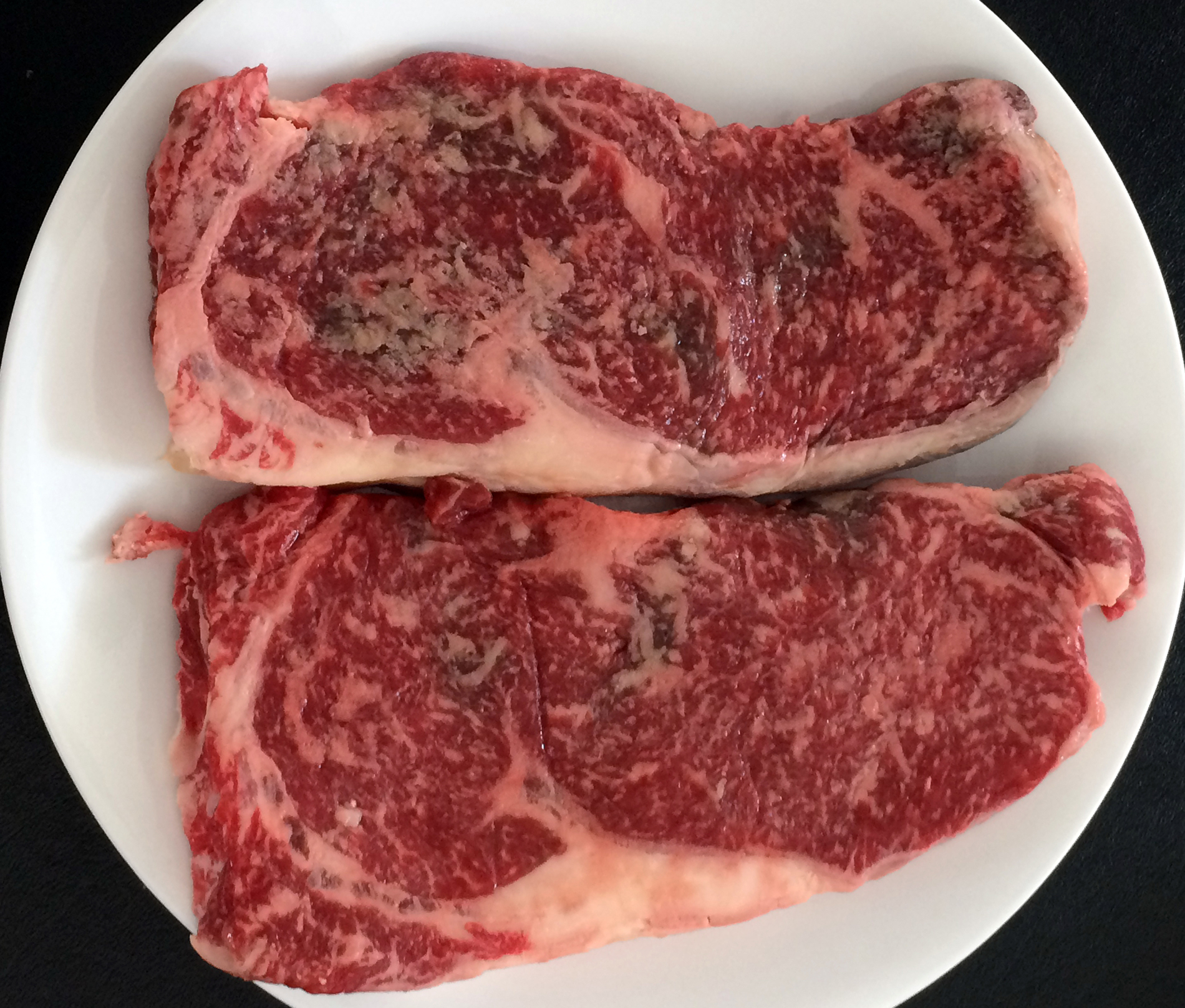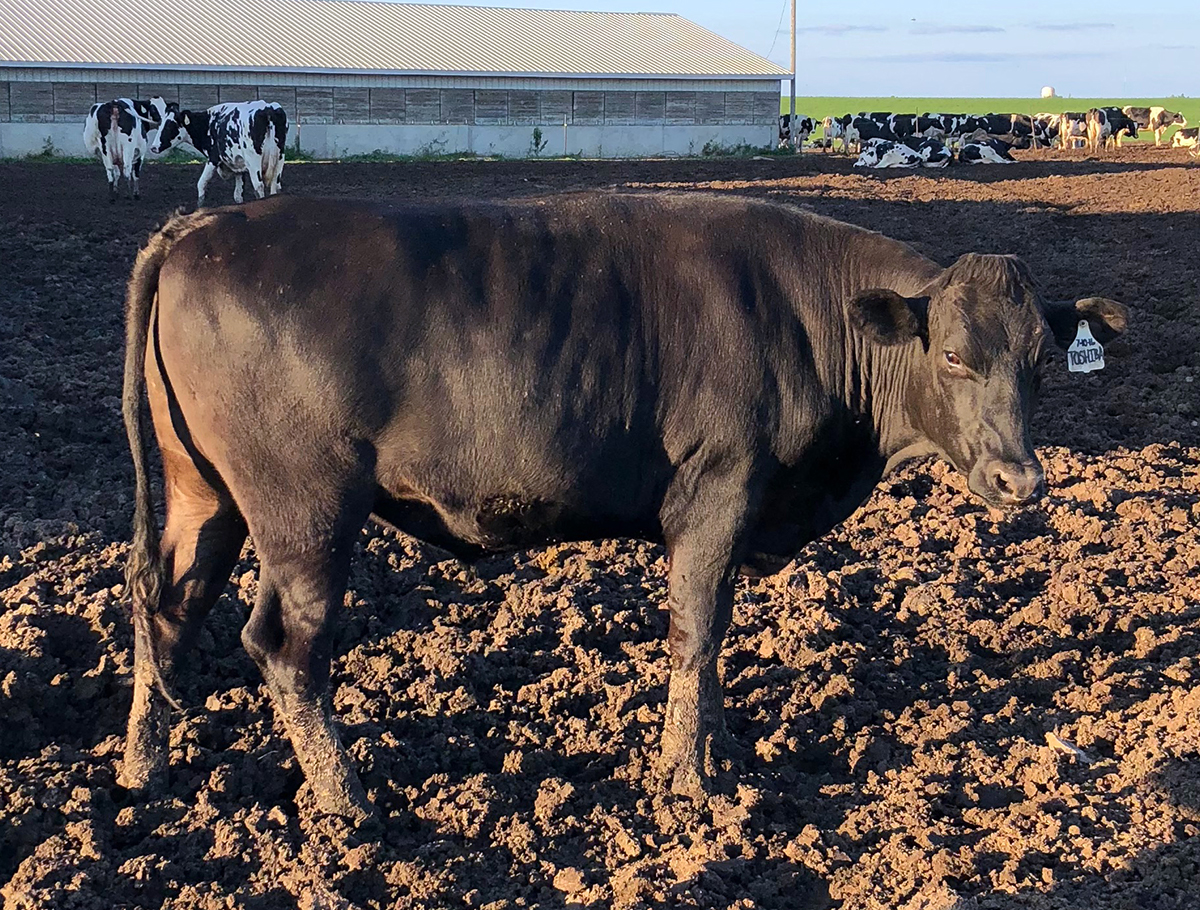Our farm’s juicy secret: Wagyu beef
January 23, 2019 8:20 pm Have you heard the buzz about our newest product on the farm? It’s actually not a dairy product.
Have you heard the buzz about our newest product on the farm? It’s actually not a dairy product.Our newest venture is in Wagyu-Holstein beef. That’s kind of a mouthful —literally!
Wagyu, a breed of Japanese beef cattle, may not be a familiar term to most people. But it’s actually the breed behind the famous Kobe beef that you see on restaurant menus.
Real Kobe beef actually comes from the Tajima bloodline of Japanese Black Wagyu cattle, and it must be raised, fed and slaughtered in the Hyogo prefecture of Japan. Many U.S. restaurants may put “Kobe” beef on the menu, but in truth, only a handful are certified to serve it (check out this article from Business Insider for more on that topic).

These Wagyu-Holstein ribeyes have excellent marbling.
Highly desirable beef
So what’s so great about it? Wagyu beef (pronounced “wahg-you”) is widely regarded as highly desirable beef due to:
- Superior marbling, shown in raw meat as tiny white dots or a spider web of ultra-thin veins throughout the muscle, which results in tender texture
- Rich, buttery flavor
- Healthy, monounsaturated fatty acids — especially oleic acid, which is responsible for flavor. These monounsaturated fats have a lower melting point, below human body temperature, so they literally melt in your mouth. Monounsaturated fats can help reduce bad cholesterol levels, which can lower your risk of heart disease and stroke.
Starting a Wagyu herd
Blake Hansen, Hansen’s Dairy co-owner and herd manager, first heard about Wagyu beef about four years ago from family friends in Des Moines. They were raising a few head just to feed to their own family, and one taste-test had Blake hooked.
This family raised both full-blood cows (mother and father are both Wagyu) and Jersey crossbreeds (Jersey mother and Wagyu father). That got Blake thinking about crossing Wagyus with his Holsteins and offering a very nice selection of meat to customers who already knew us by our dairy products. Blake actually preferred the taste of the crossbreed to the full-blood. Because it wasn’t as rich, he could eat more of it. 😉

One of the Hansens’ Wagyu-Holsteins
The first step was finding the semen. Our dairy cows are artificially inseminated so that we don’t have to keep live bulls on the farm. This provides a lot of genetic variety without having to house and feed bulls and worry about their temper. So to have a crossbred Wagyu-Holstein, we would breed a Holstein female with Wagyu semen.
Blake discovered that Wagyu cattle are typically butchered at 27-29 months old, as they gain the most marbling after 24 months. This is in contrast to more well-known breeds of beef cattle raised in Iowa, which are usually butchered at around 14-16 months.
So this is where things got hard to predict. How much demand would there be for this new beef? When you add up the time it takes for a cow to become pregnant, carry the calf for 9 months, and then raise the calf to 28 months of age, that’s more than three years. And he had to choose how many cows to breed to this Wagyu semen, and how often, because a pregnancy is never guaranteed. In the end, he decided to aim for one or two cows to be butchered each month.
Just like our dairy cows, the Wagyu-Holsteins are raised with great care and quality feed throughout their lives. They are housed in the same pens and fed the same diet as the dairy cows. We do not use growth hormones or preventive antibiotics, and we grow the majority of their feed — corn silage and alfalfa hay silage — on our own land. The genetic traits of Wagyu cattle just naturally result in better meat quality even on the same diet as a dairy cow.
Farm-to-fork
Our first Wagyu-Holstein cow went to the meat locker (we use Marks Locker in Rowley, Iowa) in August 2018. The Western Home Communities have purchased our dairy products for almost as long as we’ve been producing them, and their restaurant concept is focused on farm-to-table fine dining. They source many of their ingredients from Iowa farmers, so they were excited to be the exclusive server of this new local beef.
We also began selling the meat cuts privately to individuals. A Waterloo Courier article about our beef garnered national attention, as it was picked up by the Associated Press and published in more than 40 newspapers across the country, including the Miami Herald (Fla.), US News & World Report, Washington Times (D.C.) and Houston Chronicle (Texas). Not bad for a small-town Iowa farm.
Try some for yourself
Is your mouth watering yet? Here are some things to know when preparing it:
-
Small serving sizes. Wagyu is very tender and has a buttery flavor. Steak serving sizes are typically smaller because of the rich flavor profile.
-
Faster cooking time. Wagyu cooks faster than other beef. It is recommended that steaks are cooked to no more than medium rare for optimum palatability.
-
Juicy hamburger. Wagyu-Holstein beef is about 90% lean.
We sell our Wagyu-Holstein hamburger in bulk and patties at our Waterloo and Cedar Falls stores for $8/pound. We don’t sell the finer cuts of meat in our stores because of limited quantities and higher price point. If you are interested in purchasing prime cuts of our Wagyu-Holstein beef, call Blake Hansen at (319) 610-1530. As of this post, there are several cuts available, including roasts, short ribs, top sirloins, New York strips, ribeyes and filets, ranging in price from $16 to $100 per pound.

